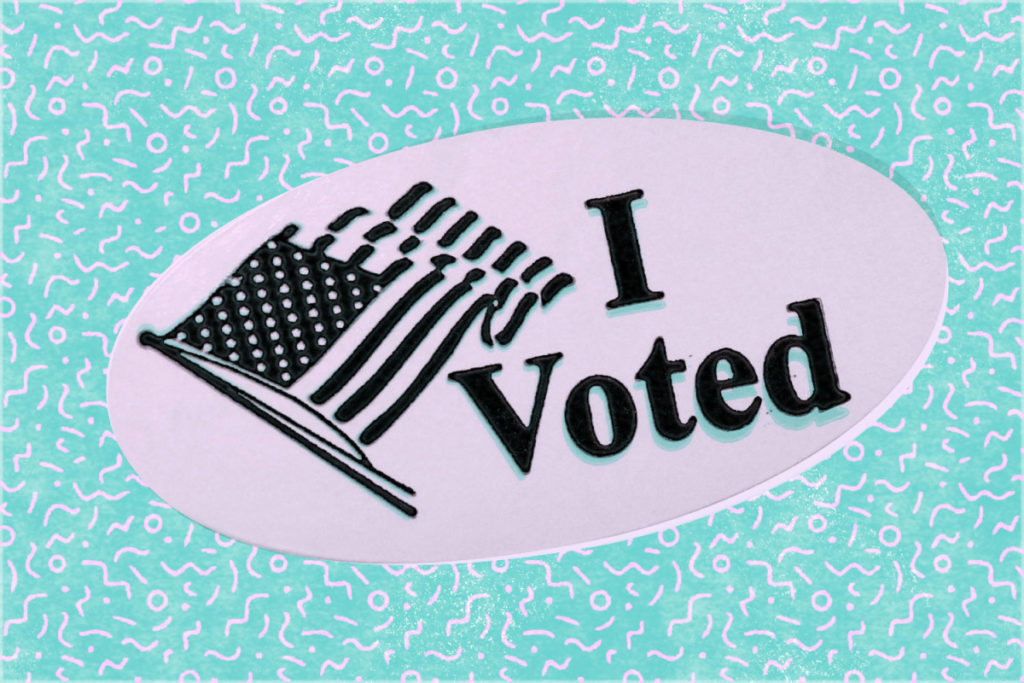Politics | September 5th, 2020
Why Gen Z is Ditching the Polls
By: Deiana Abdel-Gadir

With a little over two months to spare for the upcoming U.S. presidential election, the year 2020 has allowed for a very eye-opening political perspective for all ages, especially Gen Z. In past elections, the younger generation has been steadily increasing in ballot numbers, as Gen Z was responsible for 4% of all voters in the 2016 election. As many within Gen Z reach the voting age this year, the 2020 elections have projected they will account for 10% of eligible voters. However, the current political environment has swayed many young voters away from the polls. Lack of political understanding regarding policies, absence from the interest of older candidates and the belief that their vote will not count are reasons why the young electorate is uneasy about voting during the 2020 elections.
To put this generation into perspective, this age group includes the people born from 1996 to 2012, many of whom will be casting their first ballot this year. In regards to racial composition, they are more racially diverse than any generation before them. This diversity has allowed for a larger scale of concern for human and social rights such as immigration, police brutality and minimum wage.
These concerns for social and economic policies in their age group are often dismissed or overlooked by candidates whose target portion of the electorate contains the older white demographic. This leaves younger voters at a disconnect with the candidates and an array of questions in the path.
“At what cost to ourselves do we lose when deciding a leader this year?”
Meche’ Leflore, a 20-year-old Florida A&M University student, who will be voting in her first election this year believes that the moral disconnect with the candidates contributes to her peers’ hesitance to vote. Leflore begs the question, “At what cost to ourselves do we lose when deciding a leader this year?”
“As a whole generation, we care about things that directly affect us like college tuition, minimum wage, university grants and jobs,” said Leflore. “How can I expect to vote for somebody 70-something-years old and feel like they are going to have the best interests of me at heart? They are 50 years removed from the issues I face today. How would they understand my struggles?”
One main issue that Gen Z faces daily that preceding generations did not have is the magnitude of misinformation via social media. Instagram leads as the main platform for Gen Z to obtain information or news. The use of social media has created a more united and progressive generation than most; however, the use of this technology can oftentimes contort political beliefs according to what one consumes. With social media outlets such as Twitter and Buzzfeed serving as the majority of news intake, the need for fast news means cutting a presidential speech into 30 seconds. It can be misleading to young voters, who could be swayed away by candidates and propaganda because they were provided a vague condensed version of a news story. This tends to lead to a slew of memes often mocking the media, and especially the election.
“I’m not asking to be spoon-fed information, but I feel as though I walked into voting and politics blind…”
Since many Gen Zers are just well over 18, the majority of their understanding of politics comes from basic high school government classes. Former college students like Aletea Daniels, a 22-year-old FAMU alumnus, recalls her confusion when placed behind the ballot box.
“Growing up I didn’t learn much about politics or voting, but when I got to college, I was practically hounded about the importance of voting and registration at my HBCU. It was so much, too much information at one time,” said Daniels. “I feel like my generation doesn’t show up to polls because we don’t know what they’re about. We know about the president, but not all the other laws and articles that are on the ballots.”
Like many other Gen Zers who will be stepping up to the ballots this year, few could be surprised as to what a ballot would even look like, which would include more than just the presidential candidates.
“There were so many clauses and articles and numbers that asked me to say ‘yes or no,’ and I had no clue what they were even about. It was overwhelming and I didn’t want to vote yes or no to something I knew nothing about,” said Daniels. “I know it’s extremely important to exercise my right to vote. I’m not asking to be spoon-fed information, but I feel as though I walked into voting and politics blind and the amount of research I have to do for each position is daunting especially as college students as we simply don’t have the time.”
“Unfortunately, I feel like a lot of Gen Zers may just drop out of the ballots just off the pure fact that no one represents them authentically.”
The main issue with Gen Z participating in elections in general is the prevailing belief that their vote won’t count or matter. Young voters believe that they have to make a choice between the lesser of two evils during this election, which leaves voters feeling conflicted and pointless in their vote. Antonelli Jean, 23, discusses his thoughts on the two presidential candidates and how his disdain for this election reflects the feelings of Gen Z.
“On one end, we have one unenthusiastic Biden, who’s considerably everyone’s last pick for Democratic nominee. And on the other end, we have Trump who has a blatant disregard of any kind of civil discourse,” said Jean. “So, it’s disappointing as a generation having to ‘show up’ for ballots when it feels like no matter which way you turn your worldviews are not respected. Unfortunately, I feel like a lot of Gen Zers may just drop out of the ballots just off the pure fact that no one represents them authentically.”
Although younger generations have become increasingly involved with politics over the years, there are still people out there who think that their single vote won’t even count in the flood of ballots. For some, refusing to vote is a stand against the government or a system that doesn’t acknowledge them.






